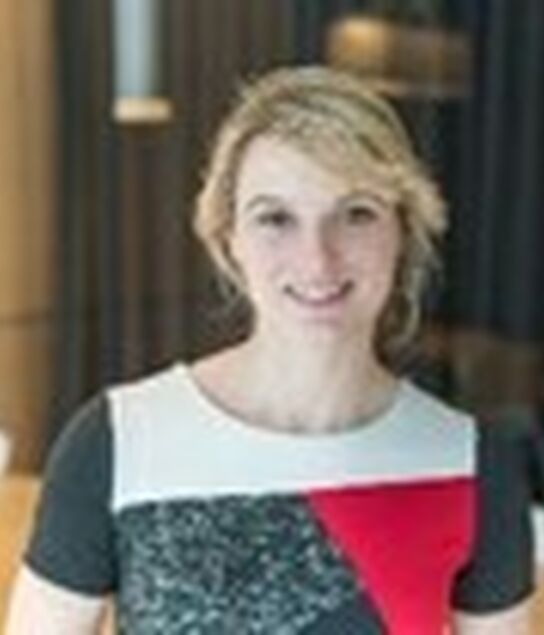Key Details
- Course Code
- CPE25AMC
Course Information
Session 1: The cost of concealing: New learnings about stigma experiences of adults with hearing loss and their families (Dr Katie Ekberg)
Stigma has long been implicated as a reason why adults with hearing impairment take an average of 7 to 10 years to seek help and why outcomes of hearing device fitting are less than optimal for some clients. However, the field has not developed a comprehensive understanding of why stigma occurs, nor has it related this comprehensive knowledge to a theoretical framework. We recently conducted a two-phase, multi-method study to systematically investigate how stigma is experienced by adults with hearing loss and their families, how they manage it in everyday life, and how these experiences relate to the decision to try hearing aids and to wear them in the long-term. The study findings revealed that stigma is a complex, social process experienced differently by adults with hearing loss and their family members. For some adults with hearing loss, the stigma associated with hearing loss was greater than stigma related to hearing aids. Both hearing loss and hearing aids were strongly associated with ageing. “Not Telling” is a major way that the stigma of hearing loss is responded to in everyday life. We concluded that stigma related to hearing loss is often not about the appearance of hearing aids. Whether an adult with hearing loss tells others about their hearing loss can be a key indicator of the level of stigma they experience.
Outcomes:
- To gain a better understanding of the concept of stigma and how it relates to adults with acquired hearing loss and their families.
- To gain new insights into how adults with acquired hearing loss experience stigma in everyday life and how they respond to this stigma.
- To gain some clinical tips on how you can address stigma related to hearing loss and hearing aids within audiology appointments with adults with hearing loss and their families.
Session 2: What options do I have? Developing a prototype web-based decision aid for adults with hearing loss (Professor Louise Hickson)
There are a number of evidence-based options that can help adults manage their hearing loss but how can they find out about these options from a trusted source? In this project we developed a prototype of a decision aid to be used on a website for adults with hearing loss guided by the International Patient Decision Aid Standards (IPDAS). A total of 153 participants completed a survey about what to include in the decision aid (111 adults with hearing loss, 21 family members of adults with hearing loss, and 21 professionals). Subsequently, six adults with hearing loss and six family members participated in a think-aloud process to provide feedback as they used an initial version of the decision aid. The methodologies used in this study are recommended for audiologists to develop decision aids for their clients. The presentation is based on a paper recently published in the International Journal of Audiology.
Additional Session: Neurosensory Restoration of Hearing: Cochlear Implants (Dr Andrej Kral)
The lecture will introduce the technical possibilities of hearing loss compensation by cochlear implants. The focus will be on physiological and pathophysiological mechanisms and on principles of artificial stimulation of the nervous system using prosthetic devices. It will introduce the concept of a current source, explain current delivery into tissue and the differences in response of auditory nerve to acoustic and electric stimulation. It will describe the signal forms used for stimulation, electrode configurations and the patterns evoked by a cochlear implant in the brain. Another focus will be on channel interactions and the dependence of the subject performance on etiology, on the state of the cochlea, age of onset of hearing loss and the state of the auditory nerve.
* Please note this event will not be accredited with Audiology Australia
Session 3: Hearing Pathway: a baby’s journey (Dr Carolyn Cottier, Florencia Montes, Lisa Bristowe, Belinda Reeve)
In December 2023 we celebrated 20 years of the SWISH Program (Sate Wide Infant Screening-Hearing). Universal newborn hearing screening has changed the life of many babies and families, allowing them to have early diagnosis and intervention and significantly improve outcomes.
Sydney Children’s Hospital is one of the three centres in NSW, providing audiological diagnostic assessments and medical investigations for babies referred from the SWISH screening Program.
During this presentation we will follow a baby’s journey from hearing screening to diagnosis: Alongside the family’s journey, our team of SWISH Coordinator, Audiologist, Developmental Paediatrician, Genetic Counsellor, and Social Worker, will provide an overview of what happens at each stage of the pathway, what services are available and our outcomes.
Outcomes:
- Understanding what happens at each stage of the SWISH pathway, including the family’s perspective and from the professionals involved in the care.
- Learning about the audiological and medical outcomes from 20 years of the SWISH program
- Comprehending the current state of UNHS in NSW.
Session 4: Making use of digital resources for caregivers, teachers, support workers and individuals with hearing loss, for more collaborative and informed bone anchored hearing care. (Cissy Chen)
This webinar will look at the breadth of digital resources available online, through apps, remote programming, classroom listening support and troubleshooting to better support bone conduction users, at every stage of their hearing journey. Through guided counselling images, testimonials and handouts you can explore different types of bone conduction devices, and what is involved at each stage of a bone anchored journey. Are remote microphones beneficial for bone conduction users? How do I set up a remote programming appointment for a regional Ponto user? Or when is it time to consider moving from a softband to surgical bone conduction solution? These discussions can be assisted through digital resources which increase access to services, access to information and support counselling through shared decision-making.
Session 5: Vestibular function and balance performance in children with sensorineural hearing loss (Dr Donella Chisari)
Balance difficulties are common in children with sensorineural hearing loss (SNHL) and for some of these children, concomitant vestibular deficits may impact daily balance ability. However, clinical tools used to assess balance performance is often not considered as part of a child’s clinical picture. In this study we explored vestibular function and balance performance in children with a range of hearing loss aetiologies. Clinical assessment tools included vestibular evoked myogenic potentials and the video head impulse test, postural control measures of static posturography, and functional balance performance measured using Bruininks–Oseretsky Test of Motor Proficiency.
Vestibular dysfunction in children with SNHL was variable. Vestibular impairment predicted poorer functional balance performance and postural control abilities, including differences in postural sway patterns. This presentation is based on recently published research in the International Journal of Audiology.
Learning Outcomes:
To describe the range of clinical tools that can be used to measure balance function in children.
To understand when balance assessment may be warranted and the clinical steps to achieve this.
To gain new insights into how children with sensorineural hearing loss maintain balance.
All accreditation has expired on this content.
This event addresses the following Standards from the Australian Professional Standards for Teachers: 1.Standard 1 (know the students and how they learn), Standard 4 (create and maintain supportive and safe learning environments), and Standard 6 (engage in professional learning). It fits within the Priority Area of Children/ Student with Disabilities. These events are evidence and research based.






